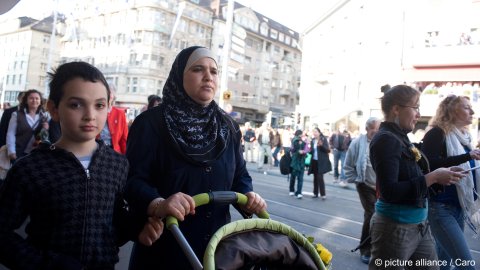Understanding the Surge in Racist Incidents in Switzerland
In 2024, Switzerland experienced a significant rise in racist and xenophobic incidents, with reports indicating a staggering 40% increase. This alarming trend raises questions about the social fabric of a nation often viewed as a model of tolerance and inclusivity. As an immigration policy expert, it is crucial to delve into the factors contributing to this surge and explore its implications for Swiss society and its diverse population.
The Statistical Overview
The increase in reported incidents is not merely a reflection of heightened awareness or better reporting mechanisms; it emphasizes a growing concern about racism and xenophobia in Switzerland. Key statistics reveal:
These statistics illustrate a worrying trend that cannot be ignored. Understanding the underlying causes is essential for addressing this issue effectively.
Factors Contributing to the Increase
Several factors may have contributed to this sharp increase in racist incidents:
1. Global Political Climate
The rise of populist and nationalist movements across Europe has had a ripple effect on many nations, including Switzerland. Political rhetoric that demonizes immigrants and minorities can embolden individuals to express xenophobic sentiments openly.
2. Economic Pressures
Economic instability often exacerbates tensions between different communities. As Switzerland faces challenges such as rising living costs and housing shortages, some individuals may scapegoat immigrants, blaming them for perceived economic hardships.
3. Social Media Influence
The role of social media cannot be underestimated in this context. Platforms have become breeding grounds for hate speech and xenophobic ideologies, allowing individuals to spread their views more widely and rapidly than ever before.
The Impact on Communities
The ramifications of this increase in racist incidents extend beyond immediate victims; they affect entire communities and the broader societal landscape.
1. Psychological Effects
Victims of racist incidents often experience long-term psychological effects, including anxiety, depression, and a sense of alienation. This can lead to a cycle of fear and withdrawal from social engagement.
2. Social Cohesion
Racism and xenophobia can erode social cohesion, creating divisions between communities. This fragmentation undermines the principles of equality and unity that Switzerland prides itself on.
3. Economic Consequences
A society plagued by racial tensions can face economic consequences as well. Discrimination in the workplace can limit job opportunities for minorities, leading to underemployment and economic disparity.
Government Response and Community Initiatives
In light of this surge in incidents, the Swiss government and various organizations have taken steps to combat racism and promote inclusivity. These measures are critical for fostering a more harmonious society.
1. Legislative Measures
The Swiss government has been urged to strengthen laws against hate speech and discrimination. Implementing stricter penalties for racist incidents could deter potential offenders and send a clear message that such behavior will not be tolerated.
2. Awareness Campaigns
Community organizations are launching awareness campaigns aimed at educating the public about the impact of racism and the importance of diversity. These initiatives encourage dialogue and understanding among different cultural groups.
3. Support for Victims
Establishing support systems for victims of racism, including counseling and legal assistance, can help individuals navigate the challenges they face. Providing resources empowers victims and fosters resilience within communities.
Moving Forward: Building a More Inclusive Switzerland
Addressing the surge in racist incidents requires a multifaceted approach. It is not merely the responsibility of the government; individuals, communities, and organizations all play a crucial role.
Here are some strategies for fostering inclusivity:
Conclusion
The 40% increase in racist incidents in Switzerland is a wake-up call for the nation. It highlights the urgent need for collective action to address the roots of xenophobia and racism. By promoting inclusivity, understanding, and mutual respect, Switzerland can work towards a future where diversity is celebrated and all individuals feel valued and safe. The path forward may be challenging, but with concerted efforts, it is possible to build a society that truly reflects the values of equality and unity that are central to Swiss identity.










